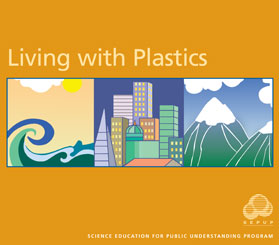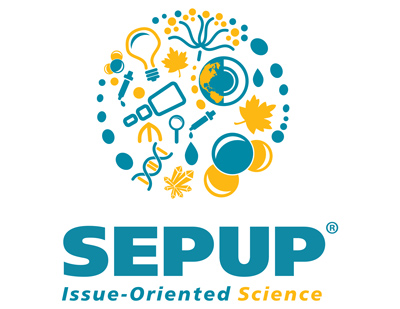Living with Plastics

Today, many different materials are used to produce the same product. What is the best material to use? What are the trade-offs in selecting one material over another? Students address these questions by focusing on the development and use of plastic. Students investigate the properties of different plastics and read about the history of plastics development. They are introduced to the basics of polymer chemistry and model the effect of cross-linking on polymer properties. Students also explore the properties of natural polymers and relate these properties to their everyday uses. Students then apply their knowledge of plastics to evaluating competing claims about the usefulness of plastics. Students are assessed on their ability to use evidence and identify trade-offs when making a decision.
Each module includes a Teacher’s Guide containing reproducible student pages and a kit containing the equipment required to conduct the activities with five classes of 32 students. The Teacher’s Guide provides specific strategies to facilitate and assess student learning.
Overview
Shown below is the table of contents for the teacher’s guide, which contains reproducible student pages.
Introduction
Module at a Glance
Guide to the Module
Activity 1: Evaluating Materials
Student Investigation: The Best Bottle
Activity 2: Materials Use Over Three Generations
Student Investigation: A Survey Over Three Generations
Activity 3: Properties of Plastic Polymers
Student Investigation: Plastic Polymers
Activity 4: Cross-Linking Polymers
Student Investigation: Creating Cross-Links
Activity 5: Modeling Polymers
Student Investigation: Making Models
Activity 6: Natural and Synthetic Polymers
Student Investigation: Polymer Properties
Activity 7: The Energy Cost of Making Polymers
Student Investigation: Who Put the Energy in My Bag?
Activity 8: Evaluating Plastic
Student Investigation: Plastic Fact or Fiction?
Appendix A: Materials
Appendix B: Background
Appendix C: Assessment
Appendix D: Glossary

